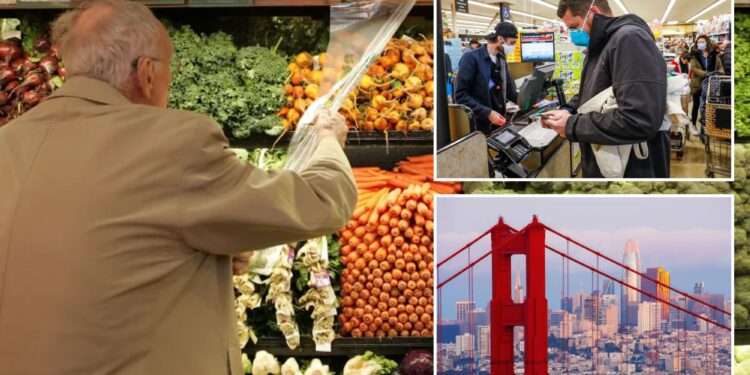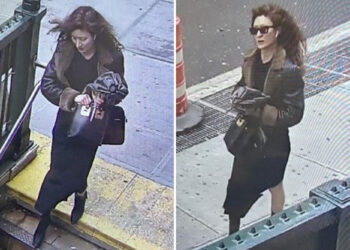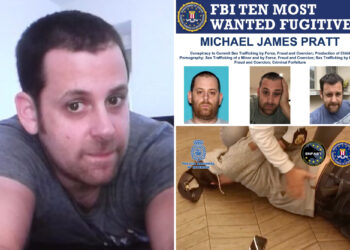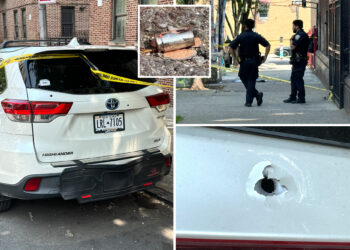
A pair of progressive San Francisco lawmakers are pushing a bill that would allow residents in the crime-ravaged city to sue grocery stores that close up shop if they don’t give six months’ notice.
The proposal by San Francisco Board of Supervisors members Dean Preston and Aaron Peskin would require business to either find a successor grocer or work out a plan with residents in the neighborhood to ensure the availability of supermarket options.
The Grocery Protection Act – which is based on a proposal the board approved in 1984 that was vetoed by then-San Francisco Mayor Dianne Feinstein — comes amid a rash of retail theft fueled by the city’s drug and homelessness crisis that has led to several business closures.
Whole Foods closed its Market Street location last year after there were 568 emergency calls lodged in a 13-month period due to incidents such as vagrants throwing food, yelling, fighting and attempting to defecate on the floor, according to the New York Times. At least 14 arrests were made at the location.
Preston, who introduced the legislation last week, floated the proposal in January when a Safeway supermarket in the Fillmore section announced it would close in March.
Safeway, which operates 15 locations in San Francisco, sold the 3.68 acres of the land to a real estate developer that plans to build a mixed-use project that will encompass both housing and commercial retail.
The day before the board was scheduled to vote on the resolution, the supermarket chain announced that it would keep the store open until next January.
The new ordinance would exempt supermarkets and grocery stores that close because of a natural disaster or business circumstances that aren’t “reasonably foreseeable.”
In those cases, the businesses do not have to provide six months’ notice.
If a store closes without providing notice to the Board of Supervisors as well as the Office of Economic and Workforce Development (OEWD) those affected by the closure would be entitled to sue for damages, according to the language of the proposed ordinance.
The bill would also require that grocery stores “meet and work in good faith with neighborhood residents” and the OEWD to find a workable solution to keep groceries available at the location.
“It was a good idea in 1984, and it’s an even better idea now,” Preston said in a press release.
“Our communities need notice, an opportunity to be heard, and a transition plan when major neighborhood grocery stores plan to shut their doors. Meeting the food security needs of our seniors and families cannot be left to unilateral backroom decisions by massive corporate entities.”
Feinstein, who would go on to become a US senator from 1992 until her death last year at the age of 90, said at the time that the policy was “an unnecessary intrusion of governmental regulatory authority.”
Last year, Preston drew the ire of Tesla CEO Elon Musk after he proposed that private security guards be restricted in the use of weapons.
Musk said he would contribute to the campaign of Preston’s opponent in last November’s election, which Preston ended up winning.
Peskin, the progressive president of the board of supervisors, has taken positions well to the left of Mayor London Breed.
He came out against Breed’s proposal to arrest people for public drug use. Peskin also opposed a proposal by Breed to require most adult welfare recipients to undergo drug screening to keep receiving benefits.



























